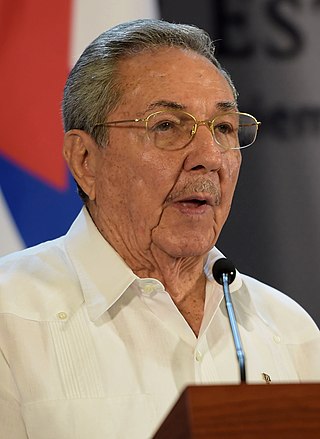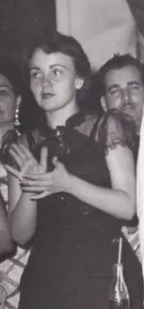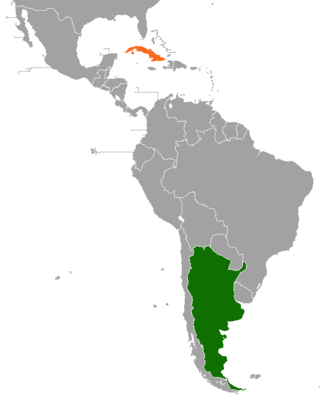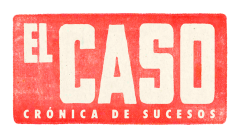Vicente Botín | |
|---|---|
 Vicente Botín in 2008 | |
| Born | Burgos, Spain |
| Nationality | Spanish |
Vicente Botín is a Spanish writer and journalist.
Vicente Botín | |
|---|---|
 Vicente Botín in 2008 | |
| Born | Burgos, Spain |
| Nationality | Spanish |
Vicente Botín is a Spanish writer and journalist.
He was born in Burgos, Spain. He studied Journalism, Politics and Sociology in Universidad Complutense de Madrid.
Vicente Botín started in the news media predominately about International Politics, concentrating on Latin America. In 1971 he travelled across the entire continent as an on-the-scene reporter for different broadcast Media; he was one of the first Spanish journalists, while in Chile, to interview President Salvador Allende.
In 1972 he reported for the Televisión Española (TVE) on significant events of that time in France, the United Kingdom, Turkey, Israel, Lebanon, Morocco and Zimbabwe.
Nevertheless, his major works were about Latin America: In the 60's he made documentaries in Nicaragua (Sandinismo y Contra), El Salvador (civil war), Paraguay (coup d'état against Alfredo Stroessner), Cuba (he interviewed Fidel Castro), Ecuador (amazon rainforest), Haiti (first triumph of Jean Bertrand Aristide), and Brazil, Guatemala, Peru, Chile and Honduras.
In coproduction between Televisión Española and UNHCR he film the documentary Duro oficio el exilio, about the drama of Central America refugees.
Later, he was the director of En Portada, long-running documentary program of TVE. The most representative episode was El descubrimiento de la lentitud, filmed aboard a replica of the Santa María Caravel on a voyage made in the same conditions experienced by Cristóbal Colón when he landed in the Americas. He also continued his news reporting activities from various places in the world.
From 1999 to 2004 he was the correspondent in Buenos Aires (Argentina) for Televisión Española; he reported on stories throughout South America. He made many reports and documentaries about the Argentinian crisis caused by the fall of the President Fernando de la Rúa, the deaths caused by starvation of the children of Tucumán; the various issues resulting from the trial of the dictator Augusto Pinochet, the problems in Bolivia related to the coca crop and the new Brazil president Luiz Inácio Lula da Silva.
From 2005 to 2008 he was the correspondent in Cuba for Televisión Española. He was threatened and pressured by the government while reporting which included stories on Human Rights, political opposition groups, the health of Fidel Castro and the possible turn over of government to his brother, Raúl Castro.
He also did reports for other Spanish language media radio and print.
When he finished as a correspondent in Cuba he wrote, Los funerales de Castro about the difficult situation of the Cubans [1] and Raúl Castro: La pulga que cabalgó al tigre, a comprehensive biography of Raúl Castro. [2]
Vicente Botín is a columnist of the Spanish newspapers El País, El Mundo and others. He lectures in Spain and the United States about the social, economical and political situation of Cuba: in Casa de América, in Madrid and Columbia University in New York, Seton Hall in New Jersey; and also for the United Nations (invited by the United Nations Correspondents Association).

Raúl Modesto Castro Ruz is a Cuban retired politician and general who served as the first secretary of the Communist Party of Cuba, the most senior position in the one-party communist state, from 2011 to 2021, and President of Cuba between 2008 and 2018, succeeding his brother Fidel Castro.

The Corporación de Radio y Televisión Española, Sociedad Anónima, S. M. E. known as Radiotelevisión Española, is the state-owned public corporation that assumed in 2007 the indirect management of the Spanish public radio and television service known as Ente Público Radiotelevisión Española.

La 2 is a Spanish free-to-air television channel owned and operated by Televisión Española (TVE), the television division of state-owned public broadcaster Radiotelevisión Española (RTVE). It is the corporation's second television channel, and is known for broadcasting cultural and public service programming, including documentaries, concerts, theatre and independent, Ibero-American and classic cinema.

Guillermo Cabrera Infante was a Cuban novelist, essayist, translator, screenwriter, and critic; in the 1950s he used the pseudonym G. Caín, and used Guillermo Cain for the screenplay of the cult classic film Vanishing Point (1971).

Mirta Francisca de la Caridad Díaz-Balart y Gutiérrez was a Cuban woman who was the first wife of Fidel Castro. They married in 1948, had one son together, and divorced in 1955.
Herbert Lionel Matthews was a reporter and editorialist for The New York Times who, at the age of 57, won widespread attention after revealing that the 30-year-old Fidel Castro was still alive and living in the Sierra Maestra mountains. President Fulgencio Batista claimed publicly that the young guerrilla leader had been killed during the landing of the yacht Granma, bringing him and others back to Cuba from Mexico in December 1956.

The Catholic Church in Cuba is part of the worldwide Catholic Church, under the spiritual leadership of the Pope in Rome. Catholics make up approximately half of the population of Cuba.
The 2006–2008 Cuban transfer of presidential duties was the transfer of the title of president and presidential duties from longtime Cuban leader Fidel Castro to his brother, First Vice President Raúl Castro, the next-in-line-of-succession person in Cuba, following Fidel's operation and recovery from an undisclosed digestive illness believed to be diverticulitis. Although Raúl Castro exercised the duties of president, Fidel Castro retained the title of president of the Council of State of Cuba and president of the Council of Ministers of Cuba, during this period.
Fabio Grobart was a Marxist-Leninist revolutionary and politician who played an important role in the 1959 Cuban Revolution that overthrew Fulgencio Batista and led to Fidel Castro's rise to power.

Silvia Munt Quevedo, is a Spanish actress and film director. She has won two Goya Awards, namely Best Actress for her role in Alas de mariposa, and Best Short Documentary, Lalia, which she wrote and directed. She has a sister and two brothers.

Jorge Gestoso is a Uruguayan journalist who was born in Montevideo.
Alejandro Castro Espín is a Cuban political and military figure. He holds the rank of Brigadier General in the Interior Ministry of Cuba. He is the only son of Raúl Castro, the former First Secretary of the Communist Party of Cuba, and Vilma Espín, one of the main leaders of the Cuban Revolution; he is a nephew of Fidel Castro.

Miguel Díaz-Canel Bermúdez is a Cuban politician and engineer. He has served as the 8th First Secretary of the Communist Party of Cuba since 2021 and as the 17th President of Cuba since 2019. In his capacity as First Secretary he is the most powerful person in the Cuban government.

The Communist Party of Cuba is the sole ruling party of Cuba. It was founded on 3 October 1965 as the successor to the United Party of the Cuban Socialist Revolution, which was in turn made up of the 26th of July Movement and Popular Socialist Party that seized power in Cuba after the 1959 Cuban Revolution. The party governs Cuba as an authoritarian one-party state where dissidence and political opposition are prohibited and repressed. The Cuban constitution ascribes the role of the party to be the "leading force of society and of the state".

Former first secretary of the Communist Party of Cuba and president of the Council of State, Fidel Castro died of natural causes at 22:29 (CST) on the evening of 25 November 2016, at the age of 90. His brother, Raúl Castro, who was president of the Council of State at the time, announced Fidel's death on state television. One of the most controversial political leaders of his era, Castro both inspired and dismayed people across the world during his lifetime. The London Observer stated that the only thing that his "enemies and admirers" agreed upon was that he was "a towering figure" in world affairs who "transformed a small Caribbean island into a major force in world affairs". The Daily Telegraph noted that across the world he was "either praised as a brave champion of the people, or derided as a power-mad dictator." Castro's body was cremated and his ashes were interred in Santiago de Cuba on 4 December 2016, and hundreds of thousands of Cubans commemorated the event.

The state visit of Fidel Castro to Chile in 1971 was a landmark event both for Chilean internal politics and for the foreign relations of Cuba. Castro's visit occurred as Chile was experiencing political convulsion amidst the presidency of Salvador Allende who had been elected in 1970. For Cuba it was the first state visit of Fidel Castro since he visited Moscow in 1964 and served to break the diplomatic isolation the country was subject to in Latin America. The state visit was unprecedented as Castro stayed 23 days in the country, travelling it from north to south, and commenting on Chilean politics. Upon arrival to each town and city Castro was usually met by crowds of supporters. His visit ended up making Salvador Allende uncomfortable while the Chilean right-wing exploited it to discredit the Unidad Popular government.

Current and historical relations between Argentina and Cuba, have existed for over a century. Both nations are members of the Community of Latin American and Caribbean States, Latin American Integration Association, Organization of American States and the Organization of Ibero-American States.

Carmen Sarmiento is a Spanish journalist and television presenter specializing in international and social issues especially relating to feminism and disadvantaged women. She was a pioneering woman in war journalism.

El Caso. Crónica de sucesos is a Spanish procedural television series, starring Verónica Sánchez and Fernando Guillén Cuervo. The plot follows two investigative journalists working for a sensationalist newspaper in Francoist Spain. Produced by RTVE in collaboration with Plano a Plano, it aired in 2016 on La 1.